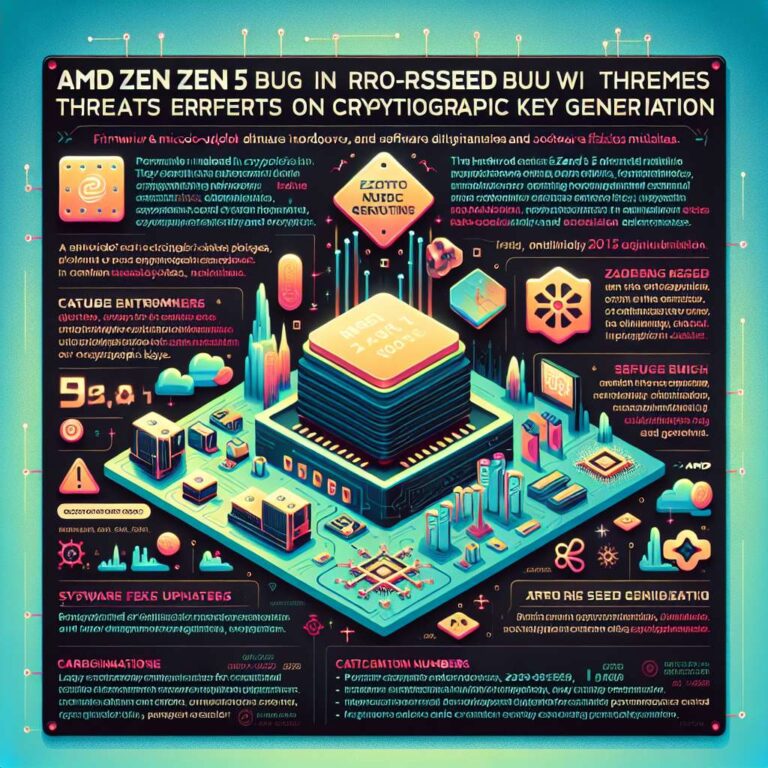AMD has acknowledged a hardware defect affecting the RDSEED instruction on its Zen 5 processors, logged as AMD-SB-7055 and assigned CVE-2025-62626. The company says the 16-bit and 32-bit forms of RDSEED can return zero values that may be misinterpreted as a successful entropy read, while the 64-bit form does not appear to be impacted. AMD rates the issue as high severity and emphasizes that RDSEED is a low-level source of entropy used for cryptographic keys and other security functions.
The immediate risk is that predictable or zero-valued entropy reads could produce weaker keys or nonces if software treats those returns as valid. As interim mitigations, AMD recommends preferring the 64-bit RDSEED path where possible, masking the affected RDSEED forms from software discovery, or treating a zero return as a failure and retrying. The company is distributing firmware and microcode updates to original equipment manufacturers to correct the issue.
AMD’s advisory lists product-family target dates for fixes, including AGESA TurinPI 1.0.0.8 for EPYC 9005 with a target date of November 14, 2025, and target timelines for consumer families in late November 2025. Users are advised to install vendor BIOS and microcode updates when they become available and to consider regenerating any sensitive keys created on unpatched systems. Until updates are applied, following the suggested software workarounds can reduce exposure.

